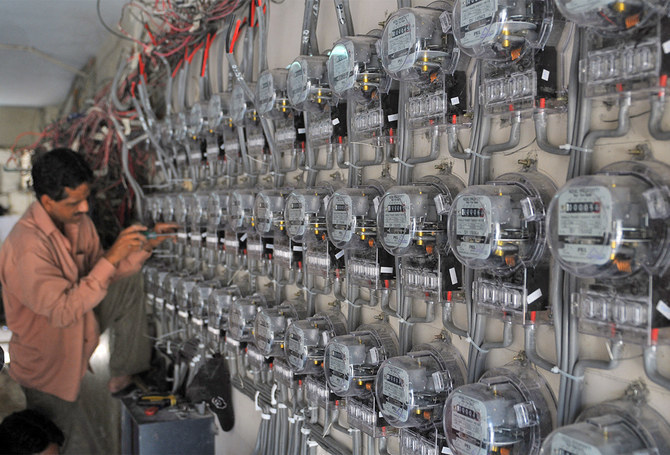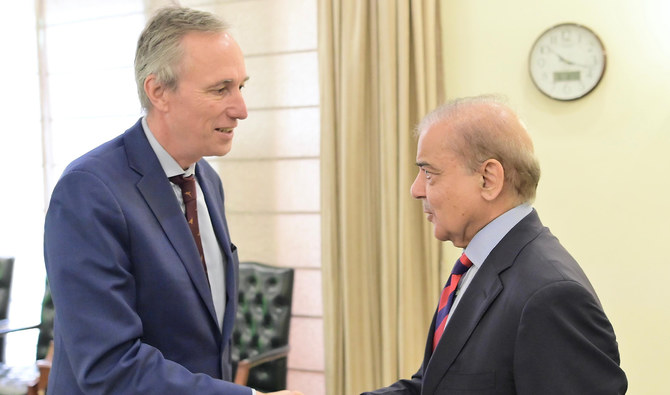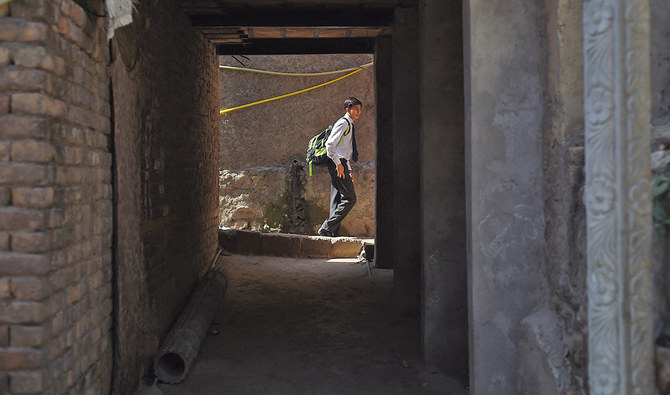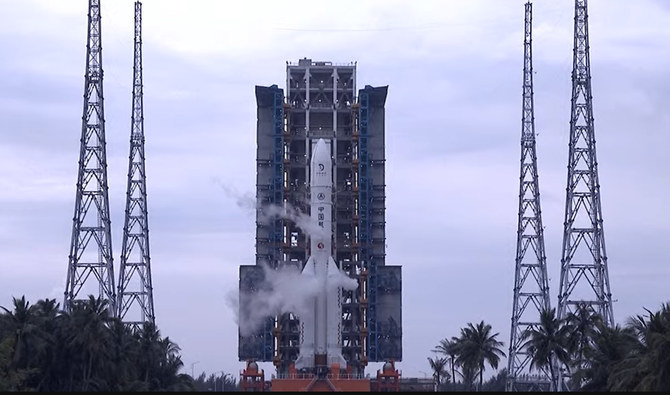QUETTA: Nawabzada Jamal Khan Raisani, 25, warmly greeted people who had arrived to congratulate him at the historical Sarawan House in the southwestern city of Quetta earlier this week as he prepares to begin his career as the country’s youngest ever directly elected parliamentarian.
Raisani won the NA-264 III constituency in Quetta in Feb. 8 elections, defeating political heavyweight and leader of the Balochistan National Party-Mengal (BNP-M), Sardar Akhtar Jan Mengal, the 61-year-old former chief minister of Balochistan province. Raisani was a caretaker provincial minister for sports and youth affairs before resigning in December 2023 to contest this month’s polls on the ticket of the Pakistan Peoples Party (PPP), whose co-chairperson is also a rare young political leader and rising star of Pakistani politics, Bilawal Bhutto Zardari.
About two-thirds of Pakistan’s population of 241 million is younger than 30 but leaders of most political parties are above 50 years of age. The country’s prime ministers since 2000 have been older than 61, on average. Three-time former Prime Minister Nawaz Sharif is 74 while the country’s most popular leader, jailed ex-premier Imran Khan, is 71 years old.
But though Raisani is young, he belongs to a long line of tribal and political dynasts in Balochistan, and is the son of Mir Siraj Khan Raisani, who was part of the pro-state Balochistan Awami Party (BAP) and before that the Balochistan Muttahida Mahaz (BMM).
Raisani’s grandfather, Ghous Bakhsh Raisani, served as the governor of the Balochistan province between 1970 and 1971 and his uncle Aslam Raisani was the 13th chief minister of the province from 2008 to 2013. Another uncle Lashkari Raisani was a senator from 2009 to 2015.
“Don’t call me Nawabzada [son of a wealthy man], call me Jamal Raisani,” the young lawmaker told Arab News in an interview, referring to an honorific used by many tribal leaders in Pakistan.
“I don’t believe in dynasty, I believe in the common man’s politics, I believe in student politics.”
Before Raisani, who was born in 1999, 26-year-old Dr. Sumera Shams of Khan’s Pakistan Tehreek-e-Insaf (PTI) party was the country’s youngest lawmaker, winning a seat in the northwestern Khyber Pakhtunkhwa provincial assembly in 2018.
“DYNASTIES”
Pakistan’s political landscape has long been dominated by well-established families, including the wealthy industrialist Sharif clan and the Bhutto dynasty of feudal aristocrats that has ruled the southern Sindh province for decades and given the country two prime ministers.
Other than periods of military rule, the two rival families and the parties they founded have swapped the reins of power frequently throughout the 1990s and formed governments until only recently, when cricketer-turned-politician Imran Khan came to power through general elections in 2018 and ruled until 2022.
In Balochistan too, the country’s largest but most underdeveloped province, it is families, or tribes, who have been at the helm for decades. Out of 16 National Assembly seats from Balochistan province, 442 candidates were declared eligible to contest the latest elections, with a majority coming from tribal and well-established political backgrounds.
But Raisani said despite hailing from an influential Baloch family, he had to deal with multiple setbacks in his short lift. His elder brother Nawabzada Haqmal Khan Raisani was killed in a bomb attack in 2011 and his father was assassinated while campaigning ahead of 2018 elections. He also had to contend with tough rivals like BNP’s Mengal who he beat this year, as well as other heavyweights in the province.
“My father, he became part of the mainstream political party in 2018, the Balochistan Awami Party, before that he was not interested in any politics,” Raisani said. “And when he was assassinated in 2018, during his political campaign, I had to step up to save his legacy.”
He said being in politics was a “hard and tough situation” but it was all worth it given the “love for me from the youth” on display in Feb. 8 elections.
Recounting his time as caretaker minister until December last year, he said he regularly faced agism.
“During that time many people were trying to spin my age as a handicap, treating me like a young child,” Raisani told Arab News. “But in developed countries, key decisions are taken by the young leadership. I believe that in Pakistan and Balochistan too change can only be brought by the youth.”
“When it comes to decision making, there is no stakeholder who is young,” he added. “So, I believe that people voting for me and other national assembly candidates who are young is a good sign.”
“MISSING PERSONS’
Among the top issues that matter to Raisani are youth problems like jobs and education and the intractable challenge of enforced disappearances in the murk of a separatist insurgency in Balochistan. The area has for decades been the site of a battle between the state and separatists fighting for a more equitable share of the resources of the mineral-rich province and outright independence from Pakistan.
The remote province is Pakistan’s largest by land mass but most impoverished by almost all social and economic indicators and political leaders.
“When we talk about Balochistan, it involves missing persons, we talk about the shuhda (security forces and civilians killed in violence) as well, infrastructure, education and the youth as well,” he said, listing major issues he would highlight in parliament.
Toqeer Ahmed Mirani, a 26-year-old resident of Qambrani Road that falls under the NA-264 constituency, said he was “glad” there would be a young lawmaker from Quetta to represent the interests of the youth and the issues of the impoverished province.
“They [older politicians] didn’t focus on the youth of Sariab [area in Quetta],” Mirani said, “who have been deprived of any opportunities.”















